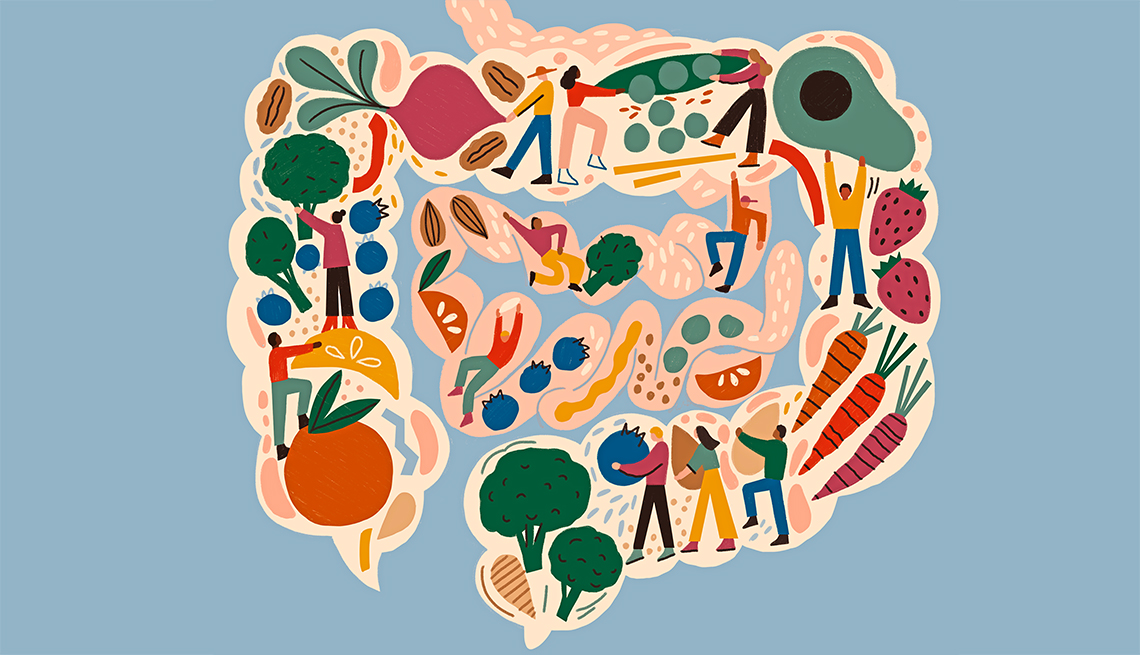How To Nurture Your Gut
Last updated on June 20, 2023
Maintaining a healthy gut is essential for overall well-being, as it plays a crucial role in digestion, nutrient absorption, immune function, and even mental health. Nurturing your gut involves a combination of strategies, including consuming prebiotic and probiotic foods, and reducing inflammation through nutrition. Here’s a breakdown of each aspect:
Table of Contents
TogglePrebiotic Foods:
Prebiotics are non-digestible fibers that serve as food for the beneficial bacteria in your gut, promoting their growth and activity. Including prebiotic-rich foods in your diet can help support a healthy gut microbiome. Some examples of prebiotic foods include:
– Garlic
– Onions
– Asparagus
– Bananas
– Chicory root
– Jerusalem artichokes
Probiotic Foods:
Probiotics are live beneficial bacteria that, when consumed in adequate amounts, confer health benefits. Including probiotic-rich foods in your diet can help maintain a diverse and balanced gut microbiota. Some examples of probiotic foods include:
– Yogurt (with live and active cultures)
– Kefir
– Sauerkraut
– Kimchi
– Kombucha
– Miso
– Tempeh
Gut Microbiome Ecosystem:
The gut microbiome refers to the trillions of microorganisms, including bacteria, viruses, fungi, and other microbes, residing in the gastrointestinal tract. It forms a complex ecosystem that interacts with the host and influences various aspects of health. To support a healthy gut microbiome, it is important to:
– Eat a diverse range of plant-based foods.
– Limit the consumption of processed and sugary foods.
– Manage stress levels.
– Get regular physical activity.
Reducing Inflammation through Nutrition:
Chronic inflammation in the gut can contribute to various health issues. Nutritional choices can play a role in reducing inflammation.
Some key recommendations include:
– Consuming a diet rich in fruits, vegetables, whole grains, and healthy fats (e.g., olive oil, fatty fish).
– Including anti-inflammatory spices and herbs, such as turmeric, ginger, and garlic.
– Limiting the intake of processed foods, sugary drinks, and excessive saturated fats.
Nurturing your gut with food involves consuming a healthy, balanced diet that supports the growth and maintenance of beneficial gut bacteria. A healthy balanced diet includes a variety of nutritious foods that provide essential nutrients, fibre, and probiotics.
So, what should your plate look like at each meal?
- Include fiber-rich foods: Fiber promotes healthy digestion and feeds the good bacteria in your gut. Aim for a variety of fruits, vegetables, whole grains, legumes, and nuts in your diet.
- Have some probiotics: Fermented foods such as yogurt, kefir, sauerkraut, kimchi, and kombucha help support a healthy gut microbiome.
- Prioritize plant-based foods: Plant-based foods are generally rich in fiber, antioxidants, and phytochemicals, which contribute to gut health. Include a variety of vegetables, fruits, whole grains, legumes, nuts, and seeds in your meals.
- Choose lean protein sources: Incorporate lean sources of protein like poultry, fish, tofu, and legumes into your diet. These provide essential amino acids for cell repair and maintenance.
5. Stay hydrated: Drinking plenty of water helps maintain proper digestion and supports overall gut health.
Now, let's address the importance of diet and how it affects our overall well-being:
- Nutrient intake: A balanced diet provides essential nutrients like vitamins, minerals, proteins, carbohydrates, and fats that are necessary for our bodies to function optimally. These nutrients support energy production, immune function, organ health, and numerous other physiological processes.
- Disease prevention: A healthy diet can lower the risk of chronic diseases such as obesity, heart disease, type 2 diabetes, and certain cancers. Nutrient-dense foods are often associated with a lower risk of these conditions, while an unhealthy diet high in processed foods and unhealthy fats may increase the risk.
- Digestive health: A diet rich in fiber and probiotics promotes healthy digestion, regular bowel movements, and the maintenance of a diverse gut microbiota. A well-functioning digestive system is essential for nutrient absorption and waste elimination.
- 4. Mental health: Emerging research suggests that there is a connection between diet and mental health. Nutrient deficiencies or imbalances can contribute to mood disorders such as depression and anxiety. On the other hand, a diet rich in fruits, vegetables, whole grains, and omega-3 fatty acids may have a positive impact on mental well-being.
5. Weight management: A balanced diet can help maintain a healthy weight. Consuming nutrient-dense foods, controlling portion sizes, and avoiding excessive calorie intake can contribute to weight management and reduce the risk of obesity-related complications.
A healthy, balanced diet is important for nurturing your gut and overall well-being. It supports proper digestion, nutrient intake, disease prevention, mental health, and weight management. By making nutritious food choices, you can optimise your diet’s impact on your body’s functioning and promote a healthier lifestyle.
This information is general in nature and does not substitute advice tailored to you and your body. Please book a consultation to discuss your health and wellbeing



